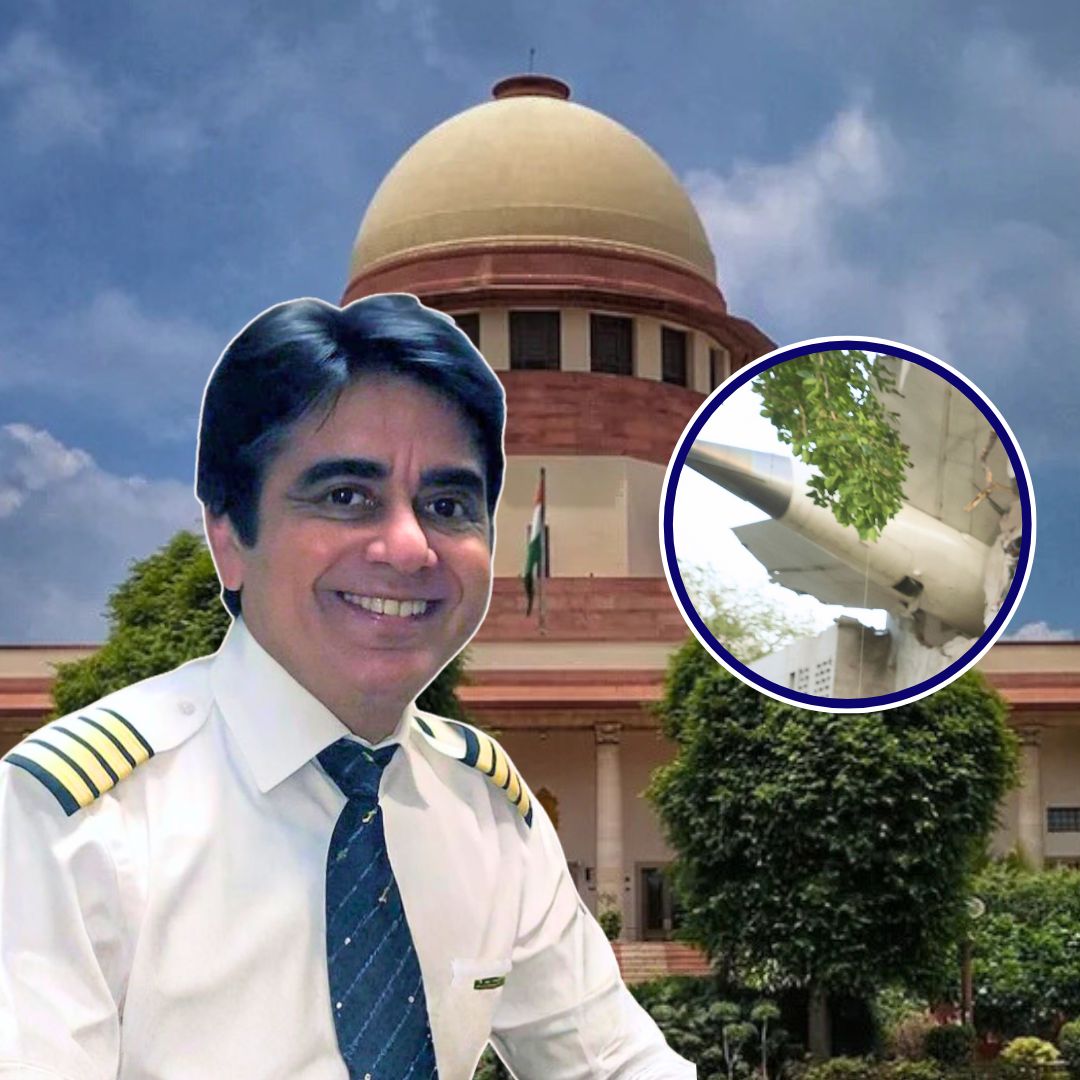The Supreme Court of India has unequivocally stated that the pilot-in-command of the Air India Boeing 787 Dreamliner, Captain Sumeet Sabharwal, who died in the crash near Ahmedabad killing 260 people, is not to be blamed for the tragedy.
Speaking to Sabharwal’s 91-year-old father, the Court emphasised that “you should not carry this burden that your son is being blamed” for the crash. The bench, comprising Justices Surya Kant and Joymalya Bagchi, said there is no insinuation against the pilot even in the preliminary probe report.
It has issued notices to the Centre and the Directorate General of Civil Aviation (DGCA) seeking responses on the plea for a judicially monitored independent probe into the crash, with further hearings scheduled soon.
Background of the Crash and Investigation
On June 12, an Air India Boeing 787 Dreamliner crashed shortly after taking off from Ahmedabad en route to London, leading to the death of all 260 passengers and crew aboard, including Captain Sabharwal.
Initial investigations by the Aircraft Accident Investigation Bureau (AAIB) highlighted possible issues with the aircraft’s fuel control switches and engine thrust that contributed to the accident, with no evidence pointing to pilot error.
The family of the late pilot and an associated NGO filed a plea demanding an independent probe, concerned about the transparency and impartiality of the official inquiry. The Supreme Court’s involvement reflects the gravity of these concerns, as aviation accident probes in India usually take 12 to 24 months to complete.
Supreme Court’s Stand and Official Directives
The Supreme Court’s remarks came during a hearing on the plea from Captain Sabharwal’s father. The bench explicitly stated that no blame should be attributed to the pilot, urging the elderly father not to carry undue burden or guilt. It underscored that the official investigation report contains no insinuation against the pilot.
“We are a country of 142 crore people and none of them believes the blame has to go to the pilot. Whatever could be the reason of the tragedy, it is not the pilots,” the court observed according to Live Law.
The Court has asked key agencies, including the DGCA and the AAIB, to respond to notices regarding calls for a judicially supervised probe which would involve retired Supreme Court judges and independent aviation experts. This move aims to ensure greater transparency and public trust in the investigation process.
The Logical Indian’s Perspective
The Supreme Court’s clear exoneration of the Air India pilot offers comfort to a grieving family and reaffirms the importance of justice rooted in factual evidence rather than speculation.
This case highlights the need for transparent, impartial, and thorough investigations into aviation disasters to maintain public confidence and support victims’ families. The Logical Indian advocates for empathy toward all affected, constructive dialogue to improve regulatory oversight, and accountability in aviation safety standards.











